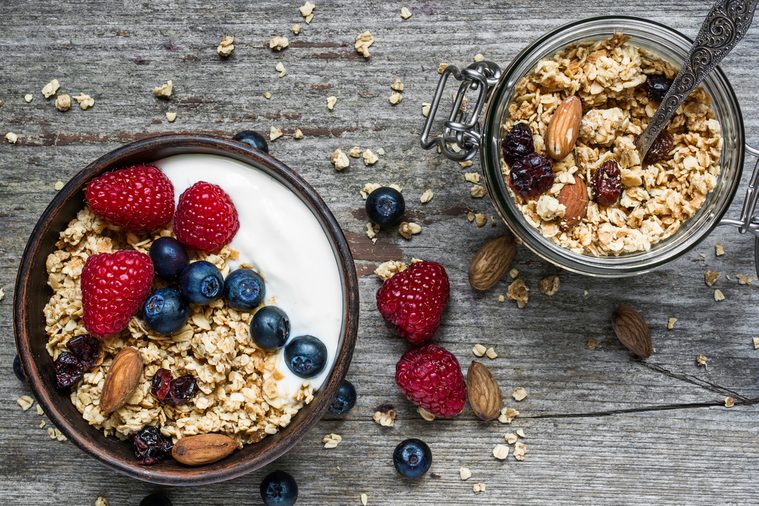
Start with breakfast
Your mom was right—skipping breakfast can have consequences. “Research shows that it’s important to eat a nutritionally balanced breakfast to boost physical and mental performance through the day,” says Sharon Palmer, an award-winning dietitian and plant-based food expert. Make a healthy breakfast (try one of these delicious ideas) that contains proteins, fats, and healthy carbs, such as Greek yogurt with fruit, or an egg and veggie omelet.
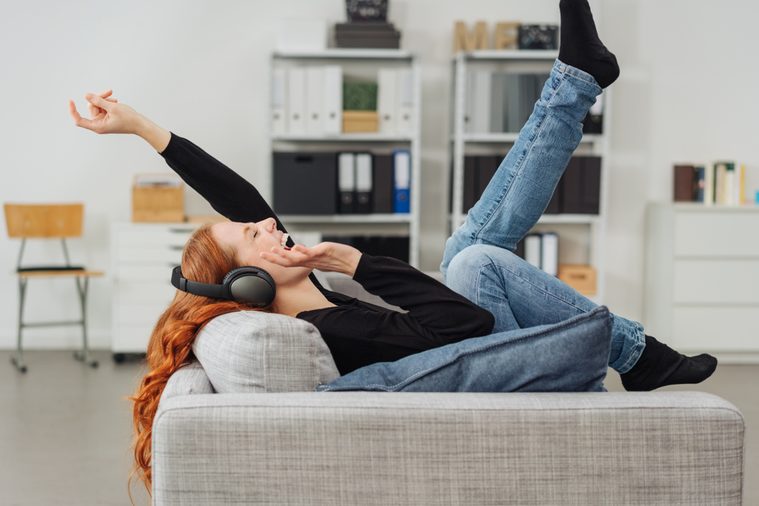
Belt out a song
Upbeat music is a great energizer on its own, but you can boost the effect even more if you start singing along or tapping out the beat. A study at Sam Houston State University in Huntsville, Texas, found that this kind of extra participation significantly increased energy levels among study subjects. So belt out a song in the shower, sing along to your playlist during your morning commute, or visit a karaoke bar with friends. Besides boosting energy, listening to music has a lot more health benefits, too.
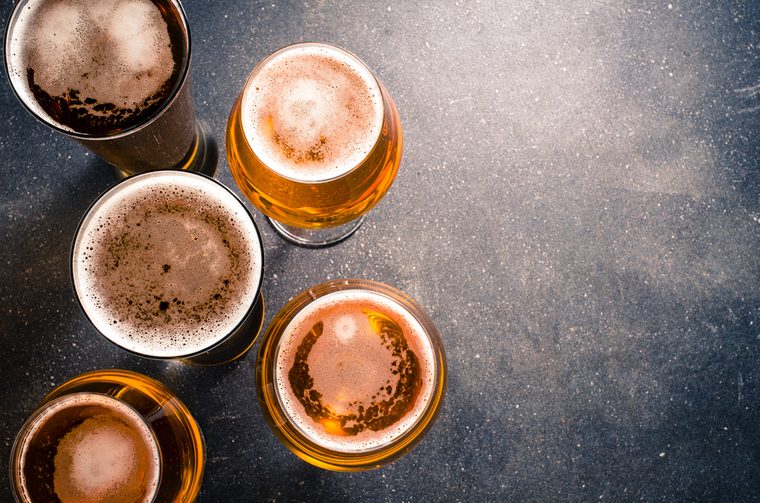
Lose the booze
Alcohol is a triple threat to energy levels. It’s a depressant, it’s dehydrating, and it interferes with sleep. You might feel like the life of the party after a drink or two, but it’s an illusion. Harvard experts say that your timing is key: Since the sedative effect of alcohol is especially strong at midday, avoid drinking at lunchtime. And 5:00 happy-hour cocktails will sap evening energy. What’s left? If you’re going to have a drink—and limiting yourself to one or two is safest—choose a time when you don’t mind feeling less energetic.

Call in reinforcements
Yawning is contagious, but energy and emotions are, too. That’s why you might feel exhausted when you finish a workday, but find a second wind when you meet your friends for drinks, dinner, or dancing. Just calling or even texting a supercharged friend can help you start to share their energy. On the other hand, know that friends who are often down or depressed may be having an energy-zapping effect on you. You don’t need to cut them off, but you might want to avoid them when you need to be especially alert and energetic. Good friends can even help you sleep better—just one of the many good-friend benefits—which of course is great to keep your energy level high.
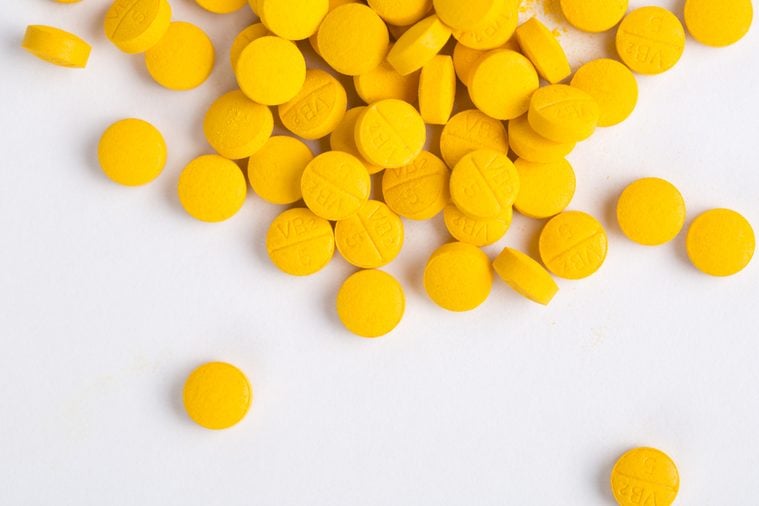
Follow Plan B
There are eight different B vitamins, and they help your body convert food into energy. “They primarily come from animal sources [fish, poultry, meat, eggs], so vegans need to make sure they’re getting their B12 needs met by being very careful with their diet or choosing fortified products,” says Erin Palinski-Wade, RD, a nutrition and diabetes expert, and author of the Reader’s Digest book, The 2 Day Diabetes Diet. The best source of B-fortified foods are cereals and breads, she points out. It’s always best to get nutrients from food, but vegans and others concerned about their B vitamin intake can use supplements when necessary.

Chew gum
Don’t be so quick to judge the colleague down the hall who snaps her gum during staff meetings; she might know something that you don’t. Research shows that the act of chewing gum helps to increase alertness and energy. Obviously, there are situations where gum-chewing is inappropriate (a job interview, for instance). But keep some in your desk drawer—mint gums are especially effective—and chew in private when you need some extra focus and energy.
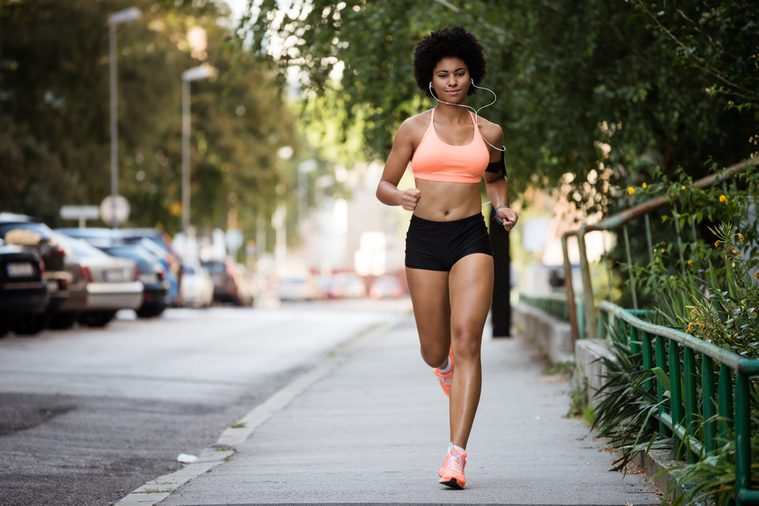
Head outdoors
Weather permitting, taking your fitness routine outdoors will give you an extra energy boost. When researchers at the Peninsula College of Medicine and Dentistry in England compared people who walked or ran outdoors or in, those who were getting fresh air and natural surroundings along with their workout reported increased energy and more vitality. An added bonus: The outdoor participants reported greater enjoyment and satisfaction with their activity, and were more likely to say they’d do the activity again.

Try an Asian energy booster
Long used as a natural remedy in Asia, the adaptogenic herb ginseng can help battle fatigue and stress. “If you don’t feel like you have a lot of energy, or you’re having trouble concentrating, it can help with energy levels.” Ginseng is available as a tea or in supplements,” says Palinski-Wade. “Try small amounts first, and check with your doctor to make sure you aren’t taking any medications the herb might interact with. In addition to ginseng, other adaptogenic herbs, like Rhodiola rosea, can also help beat fatigue.
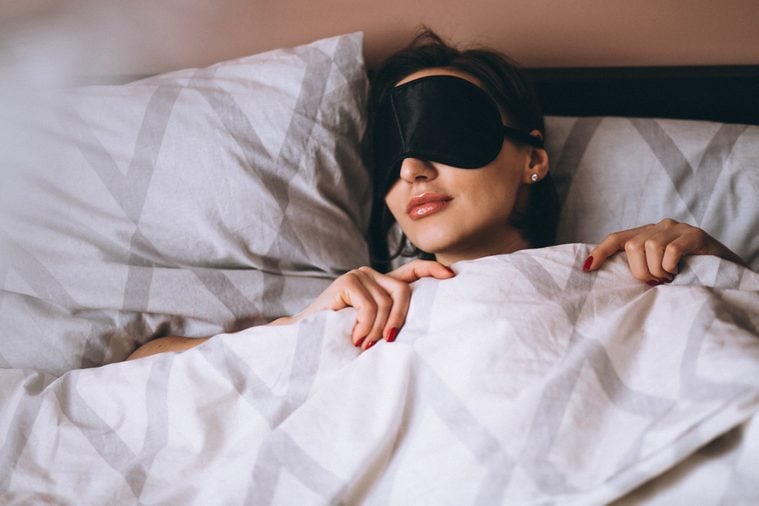
Sleep (duh)
It’s a no-brainer—you need to sleep enough at night to have energy during the day—so why are so many of us not doing it? According to the Centers for Disease Control and Prevention, more than a third of American adults aren’t getting enough sleep. The American Academy of Sleep Medicine and the Sleep Research Society recommend that adults age 18-60 years old get at least seven hours of sleep each night for optimal health and well-being. Check out these 11 weird sleep tricks that actually work.
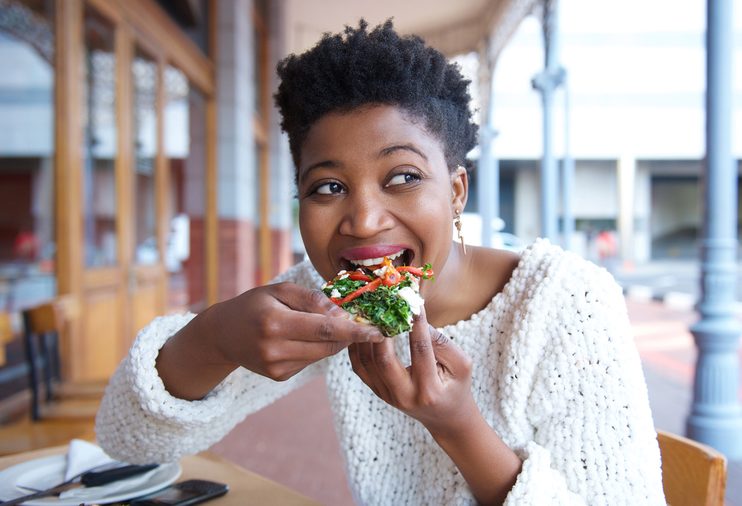
Eat often
It’s not just what you eat, but when you eat, too. Says Palmer, “Some people benefit from small meals and snacks throughout the day to keep energy levels high and avoid hunger.” This strategy can help keep blood sugar levels from dipping dramatically while making sure your brain and body have a steady source of fuel to get you through the day.
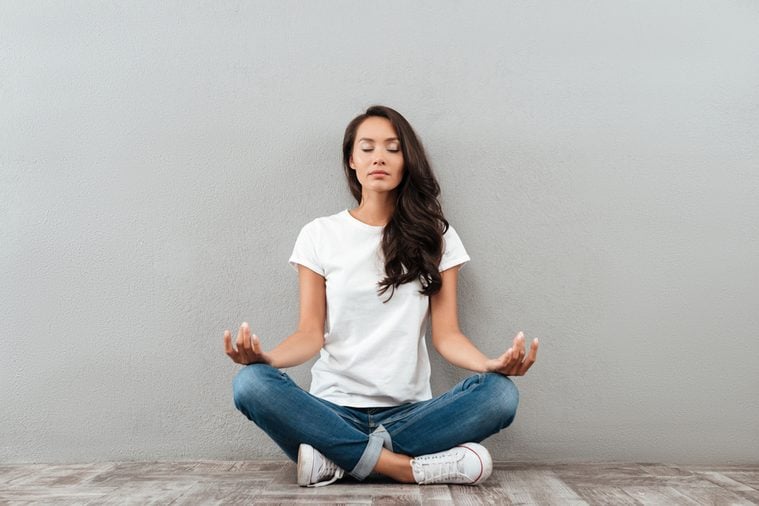
Try mini-meditation
Meditation isn’t just for relaxing and doesn’t have to take a lot of time. Try this two-minute meditation from Deepak Chopra, MD, author and alternative medicine advocate, to energize your body when you feel fatigued. Even quicker: Just spend a minute or two trying to think of something that makes you feel excited. That will make your brain release energy-boosting endorphins.
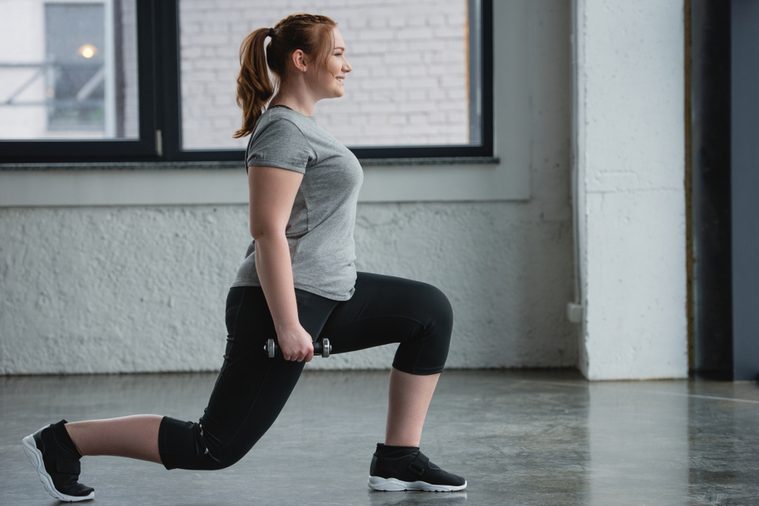
Move more
You might feel too tired to work out—but if you do it anyway, you’ll have more vigor. Exercise gives your cells more energy to burn and circulates oxygen. It also makes your body release more epinephrine and norepinephrine—stress hormones that, in modest amounts, can make you feel energized. And exercising during the day means you’ll sleep more soundly at night. Need more convincing? A 2008 study at the University of Georgia found that when sedentary people who were chronically tired (with no medical explanation for their fatigue) engaged in just 20 minutes of low-to-moderate intensity exercise three times a week, they reported that their energy increased by 20 percent and their fatigue decreased by 65 percent. “When you exercise you’re basically improving your circulation,” explains Bryant Walrod, MD, a sports medicine physician at The Ohio State University’s Wexner Medical Center. “You have more blood going to the muscles and making more ATP, which is the energy currency of the body.” Don’t miss these 9 medical reasons you might be tired all the time.
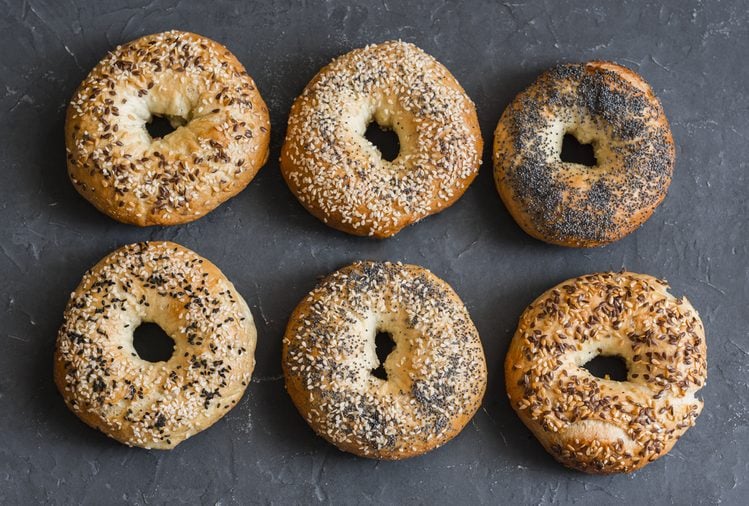
Go low. . . glycemic index, that is
You don’t need to give up carbs, but try to choose carbohydrates that are low on the glycemic index scale; these are foods that you digest and convert to energy at a slower, steadier rate. “Carbohydrates are nature’s preferred source of energy,” says Palmer. “When you eat highly refined carbohydrate foods [white bread, bagels, muffins] they turn into energy more rapidly, and you get a rapid rise. . . and a rapid decrease. But when you eat minimally processed carbohydrate foods [like whole grains, vegetables, fruits] they raise blood sugar levels—meaning energy—more slowly and for a long period of time, so you get a smoother, longer release of energy.” Check out what a dietitian eats to get more energy.
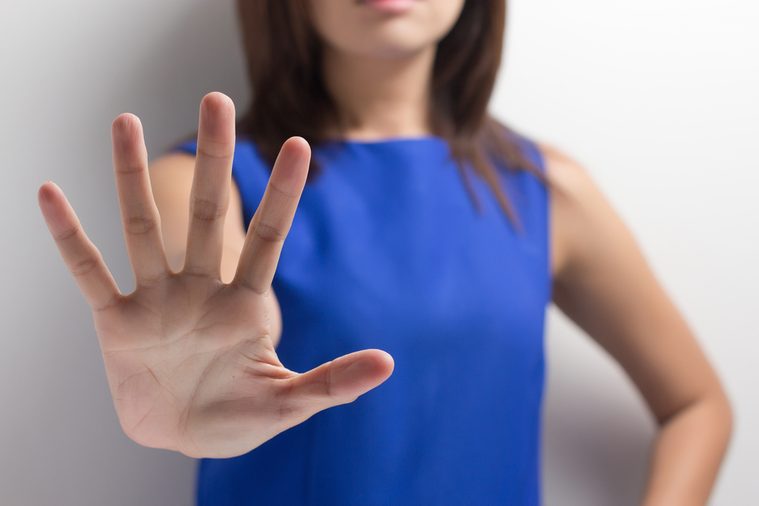
Just say no
One of the main reasons for fatigue is overwork, say experts from Harvard Medical School. That doesn’t just mean your job, but any obligations—professional or social—that take too much of your time and effort. If you constantly feel that there aren’t enough hours in the day and don’t know how to get everything done, the answer isn’t necessarily to work harder. Learn how to set your priorities and say “no” sometimes. When you can’t do it all, rewrite your list of “must-do” activities and re-categorize the less important ones. And remember, there’s no shame in asking for help when you need it.
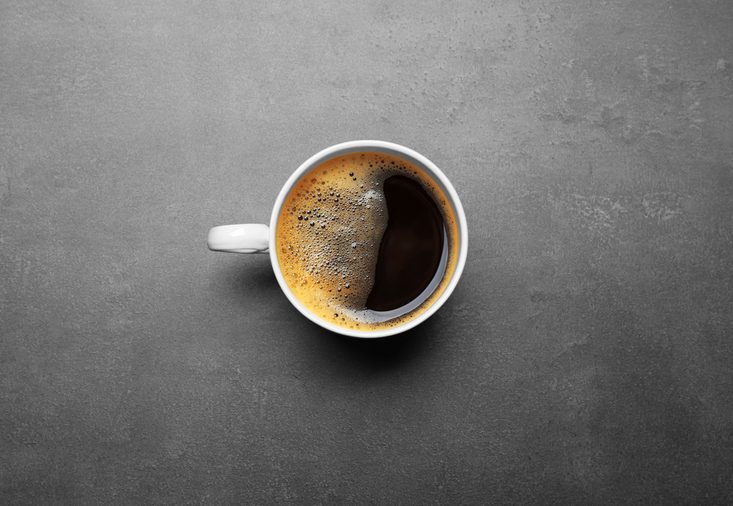
Caffeinate wisely
Caffeine is said to be the most widely used stimulant in the world, and it’s great for instant—albeit temporary—energy. So enjoy some coffee or tea, but be smart about it. Palinski-Wade recommends limiting daily caffeine to about 300 mg a day—the equivalent of about two medium cups of coffee or about twice as much tea. “Too much,” she says, “can start to reduce serotonin production, and make you feel less motivated and even a little depressed. It becomes a stressor to the body.” Caffeine’s effects generally peak an hour after you get it, and can last for as little as three or as long as eight hours, which is why abstaining after 3:00 p.m. or so is a good idea so it won’t interfere with sleep and make you even more tired the next day.
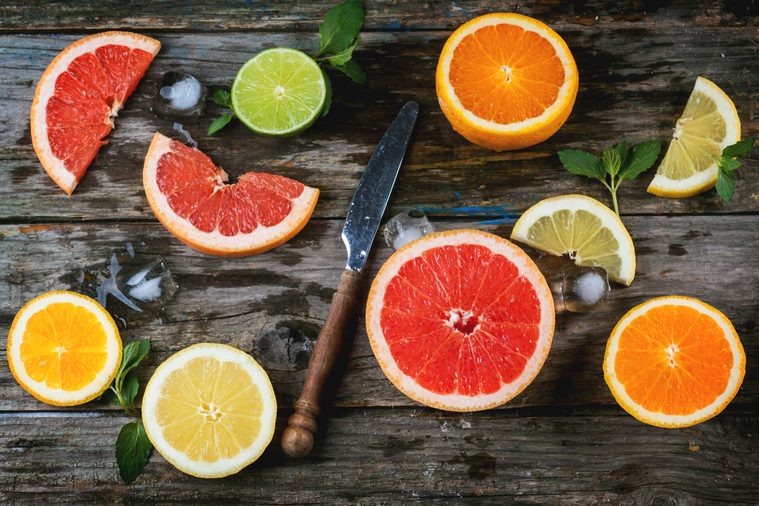
Take a sniff
Your nose can influence your energy levels, too. Certain odors can help stimulate the part of the brain responsible for arousal and make you feel more awake and alert. Smells associated with energy include peppermint, cinnamon, rosemary, and citrus. It’s up to you whether you want to inhale the scents from foods, essential oils, candles, or the fragrance in personal products like shower gel. One Korean study even found that you don’t have to drink coffee for its “upper” effects: Just smelling coffee beans seems to send a wake-up call to the brain. Check out the top 7 essential oils for energy.
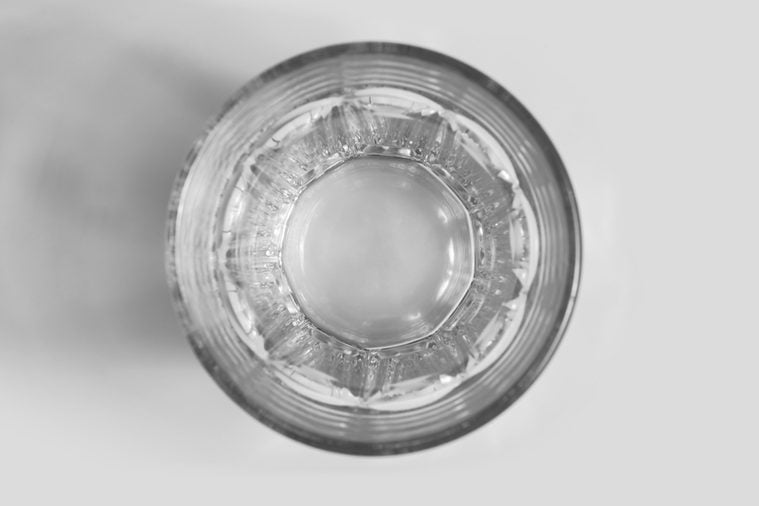
Hydrate
It’s true: Your body is about 60 percent water, and being even a little dehydrated can impact your energy. While hydration recommendations are all over the place—and don’t take into account the other fluids you drink or the water in foods like fruits and vegetables—a decent starting place is the classic eight cups a day. Just realize that you may need more. According to the Mayo Clinic, you’re probably getting enough water if your urine is colorless or light yellow, and you rarely feel thirsty.

Find your passion
According to Oprah Winfrey, “Passion is energy. Feel the power that comes from focusing on what excites you.”
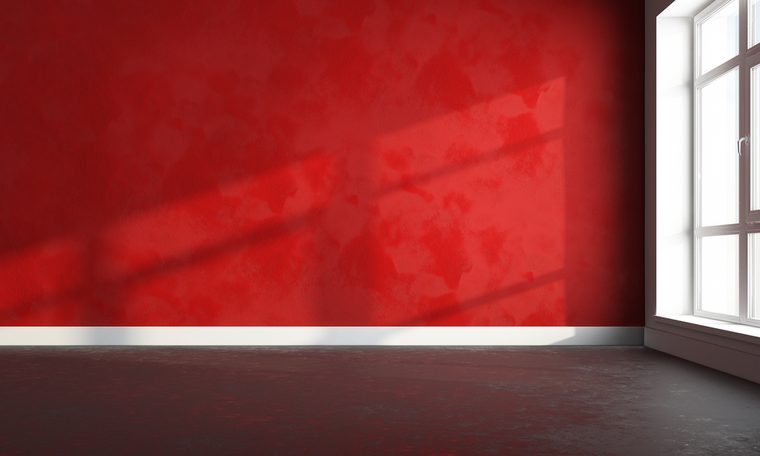
Seeing red
No, don’t get angry—red is the color of energy, according to color science (the study of how colors in your environment affect your mood and health). For increased vigor and productivity, red has a dramatic effect, says Mariana Figueiro, PhD, who has spent her career studying the effect of colors. Some workplaces are starting to paint common rooms and other areas red, or use red lights for workers on night shifts. If that sounds a bit too dramatic for your workspace, just add pops of red to your life wherever you can—red nail polish, red boots, a red pendant—to rev you up. check out these other tricks to boost your energy levels.
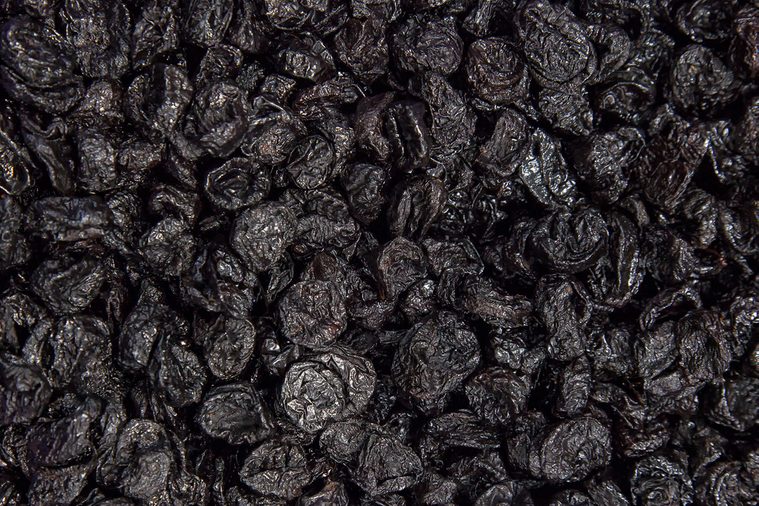
Snack on “dried plums”
OK: prunes. Rebranding aside, they’re not just for old people with digestive problems anymore. “Prunes are great to satisfy your sweet tooth naturally and give you sustained energy,” says Palinski-Wade. “They’re one of the lowest foods on the glycemic index, so the carbohydrates are released slowly—the fiber slows down the absorption. They’re also a good source of magnesium, which is helps to convert food into energy.”
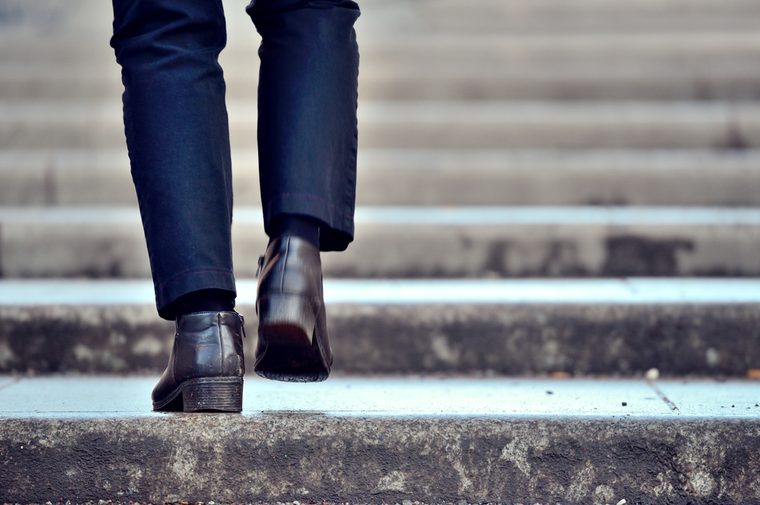
Try short bursts of exercise all day
You’ve probably read about sitting disease, and how sedentary jobs are bad for your heart. Turns out that too much sitting is bad for your energy level, too. A study published in 2016 found that people who got out of their chair for short bursts of activity throughout the day reported more energy and lower levels of fatigue than when just sat. “Every little bit helps,” says Dr. Walrod. “Just find 10 or 15 minutes to sneak in some movement—take a walk, climb a couple of flights of stairs. These quick opportunities throughout the day will help improve blood flow and energy.” Here are 7 more things that drain your energy levels every day.

Ban slouching
If you need more reasons to sit up straight (besides the fact that it can make you look ten pounds thinner), consider this study. Researchers at San Francisco State University had students either walk down the hall in a slouched position or skip. Afterward, the slouchers reported less energy than the skippers.

Avoid energy drinks
So-called energy drinks may not be the smartest way to get your energy. In response to concerns about the caffeine and other stimulants in these drinks, The American College of Sports Medicine issued an official statement which cautions at-risk groups—especially children and adolescents—against consuming these drinks. The ACSM also advises everyone to avoid consuming the drinks before, during, or after strenuous exercise. According to John Higgins, MD, a spokesperson for ACSM: “When used safely and with moderation, energy drinks may have some short-term, performance-enhancing effects. However, users are generally unaware of the many potential adverse reactions that could have long-term effects, some of which are quite serious.” Instead, try these natural energy drinks that you can make at home.
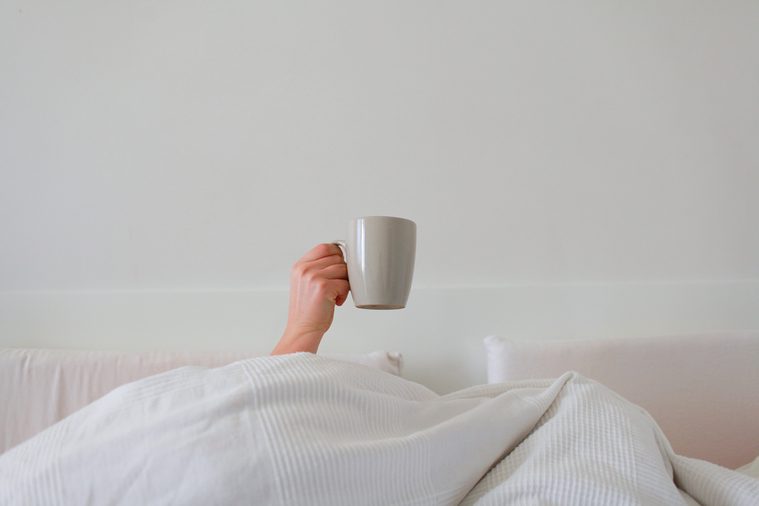
Take a “nappucino”
Daytime naps can help temporarily fill a sleep deficit, but sometimes people wake up feeling slow, groggy, and even less energetic than before. Dan Pink, the author of many books on behavioral science, has a solution: The perfect nap is the “nappuccino.” To take a nappuccino, drink a cup of coffee right before lying down. The caffeine won’t take effect quickly enough to stop you from sleeping, but it will kick in and wake you up, feeling alert, less than half an hour later.
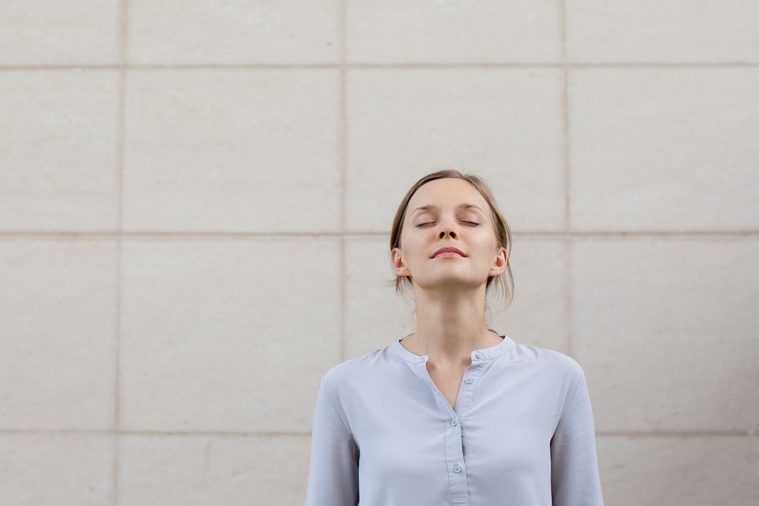
Breathe
“Practicing a regular, mindful breathing exercise can be calming and energizing,” says holistic healer Andrew Weil, MD. He recommends one called the Stimulating Breath Exercise, which he adapted from yogic breathing techniques. Simply breathe in and out quickly through your nose for 15 seconds. This should be noisy—aim for three breaths per second. You’ll feel invigorated afterward like you just had a good workout.
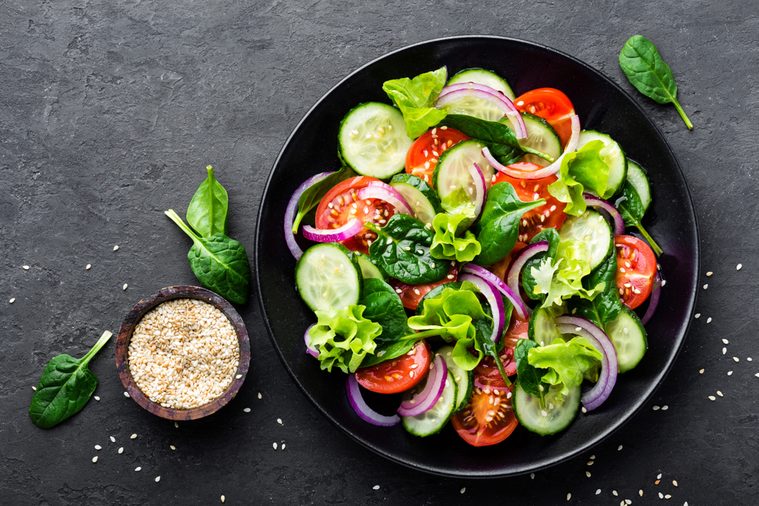
Sow some seeds
Add some sesame seeds to your salad, bagel (whole grain), or avocado toast. “The seeds are packed full of magnesium and a really good source of plant-based protein,” says Palinski-Wade. “The magnesium helps convert food into energy.” A tablespoon of seeds will give you 32 mg of magnesium, about a tenth of your daily needs. The seeds are also rich sources of calcium and vitamin E.
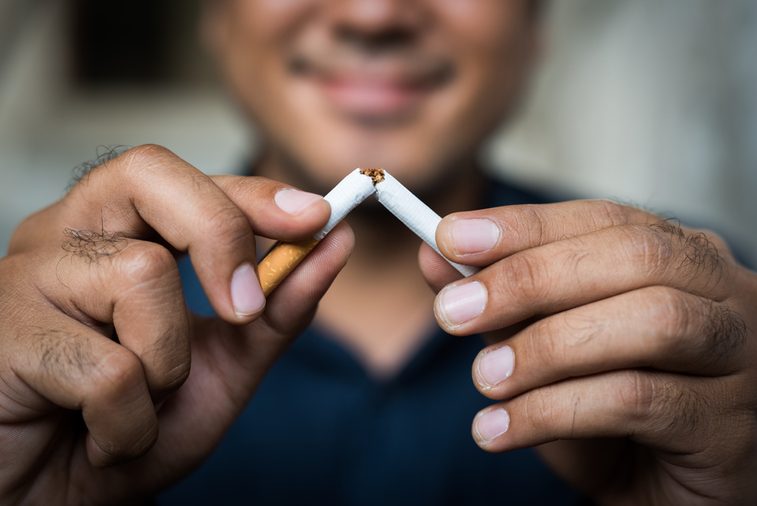
Kick the habit
Like alcohol, smoking saps energy in multiple ways. First, it causes insomnia, reports Harvard Medical School: “The nicotine in tobacco is a stimulant, so it speeds the heart rate, raises blood pressure, and stimulates brain-wave activity associated with wakefulness, making it harder to fall asleep. And once you do fall asleep, its addictive power can kick in and awaken you with cravings.” Quitting, though, can instantly raise energy levels by helping you sleep better. Plus, the greater lung efficiency you gain will make you feel less tired, too.
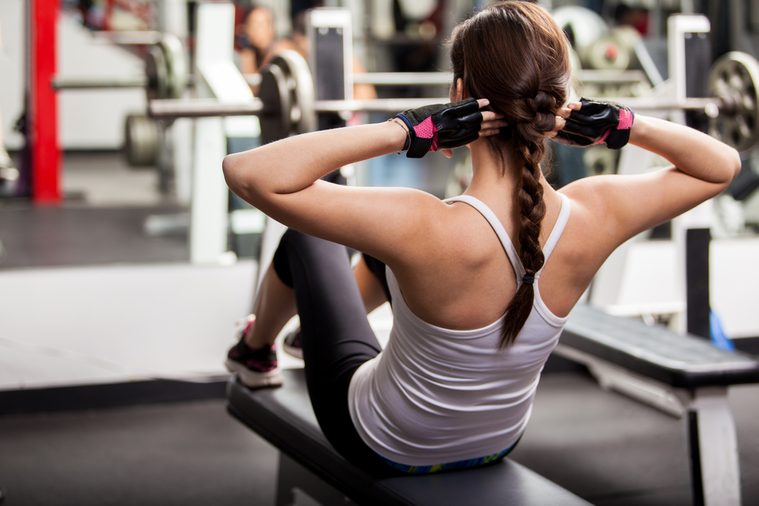
Workout by midday
A Swedish study found that people who exercised before or during lunchtime had more productive workdays. But if you can’t fit in exercise until after work, that’s OK, too. “The best time for exercise is when you have the most energy and can work hardest,” says Joe Wicks, a well-known British fitness and cooking expert whose latest book is The Fat-Loss Plan: 100 Quick and Easy Recipes with Workouts. If you’re a morning person, do it in the morning to get the most out of your workout. But do it any time you can.
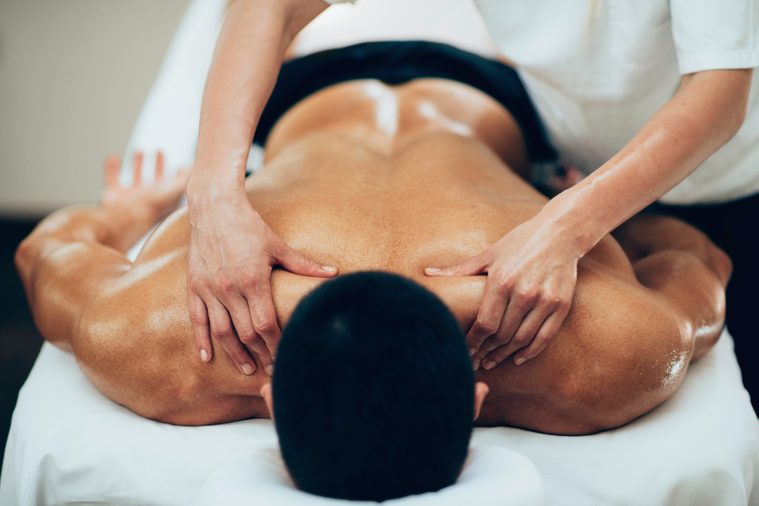
Try acupressure
Acupressure uses the same map of the body as acupuncture, but it uses pressure rather than needles—and you can self-treat. There are several points that can target fatigue and boost energy. EkhartYoga, an online yoga studio, recommends these:
Zusanl point: Find it by running your fingers up the outside of your shinbone. The point is just under the lumpy top of the bone, where you might feel a dip. Press gently but firmly on the point while taking ten deep breaths.
Shui Gou point: It’s located about a third of the way down the groove between your nose and upper lip. Apply gentle pressure here for up to a minute.
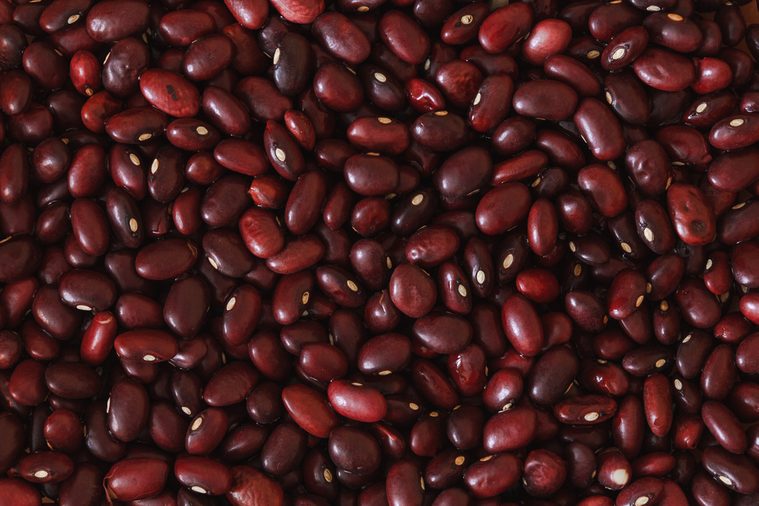
Get full of beans
“Anything that can stabilize blood sugar will give you stabilized energy through the day,” says Palinski-Wade. “Beans are a good combination of protein, fat, and fiber. That’s what will stabilize the carbohydrates that come in and give you consistent energy.” Beans are also a good source of iron. “And if you’re deficient in iron, even if you’re not anemic but just a little low, you’ll still see energy levels drip a bit. Having a good source of iron is important.” Find out some more quick ways to boost your energy.
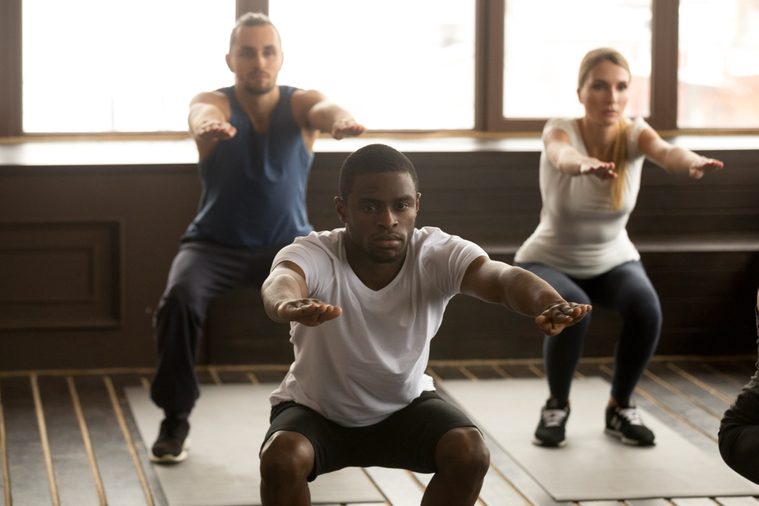
Follow fitness basics
If you want an instant energy fix, simply spend a minute or two getting your blood flowing with some old-fashioned fitness moves. “Basic body moves like burpees, squats, and lunges can fire up your heart rate and get you feeling energized,” says Wicks.
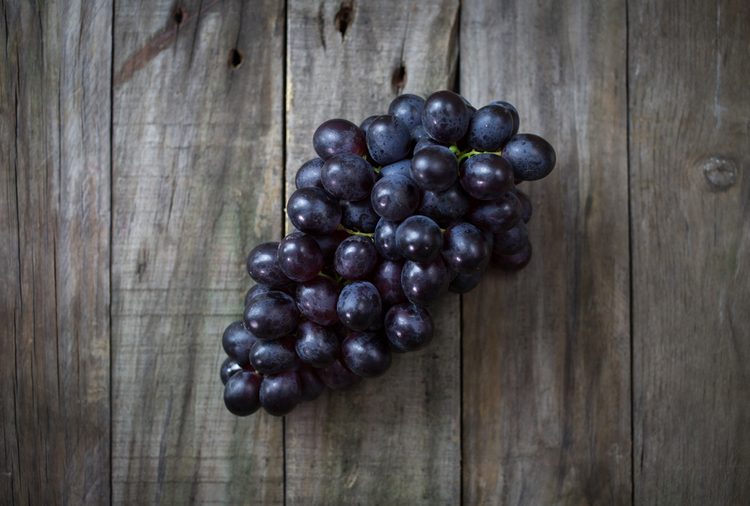
Grab grapes
Joy Bauer, MS, RDN, an expert on nutrition and weight loss, points out that purple grapes contain high amounts of a plant compound called resveratrol that has been found to help combat exhaustion. Bauer’s newest book, Joy’s Simple Food Remedies: Tasty Cures for Whatever’s Ailing You describes how food can help combat many common complaints, including fatigue, and suggests ways to include these remedy foods in a healthy diet (such as in a recipe for Savory Chicken Meatballs with Roasted Grapes).
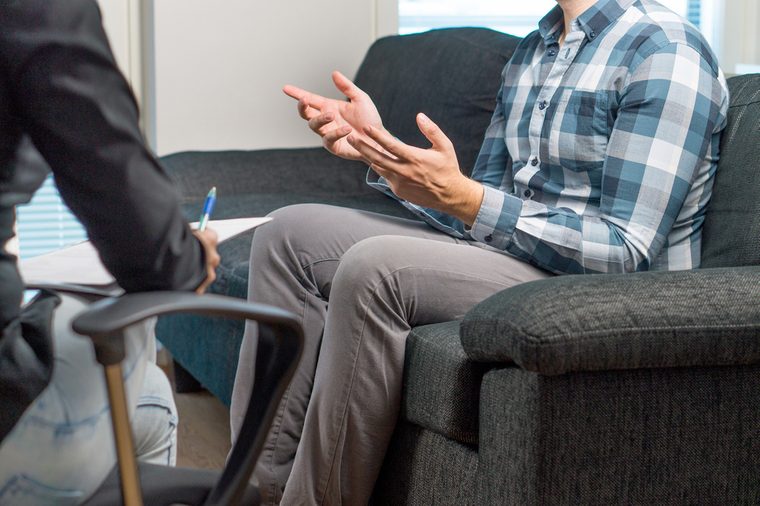
Don’t let stress sap you
Stress can suck up your energy and leave you feeling exhausted. Reducing your stress is an excellent way to combat fatigue. Try talking it out—with a friend, support group, or therapist—to see if it helps restore your well-being. Relaxation therapies like meditation, yoga, and tai chi can help also reduce stress and leave the body energized. Find out the ways to get more energy for your workday.
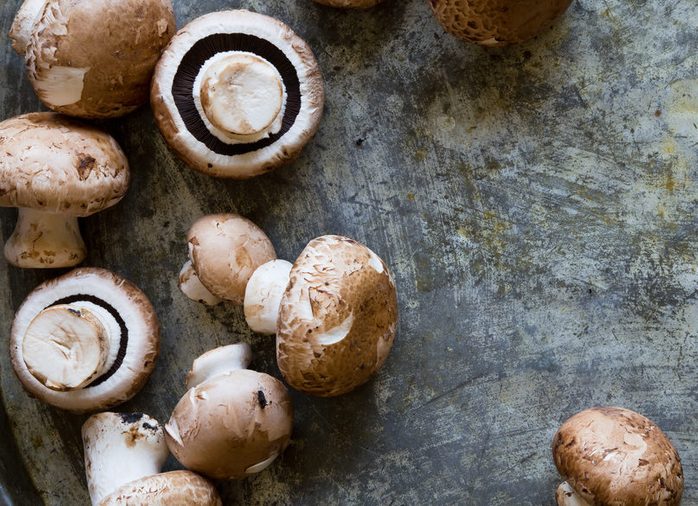
Go for G-BOMBS
According to Joel Fuhrman, MD, who advocates a micronutrient-rich, plant-based diet, there are certain foods that are especially beneficial for energy and health. He’s coined the acronym G-BOMBS—greens, beans, onions, mushrooms, berries, seeds—to highlight some of the best. Recommends Dr. Fuhrman: “Follow a high-nutrient diet that contains G-BOMBS for energy that never quits, as well as protection against chronic disease including cancer.”
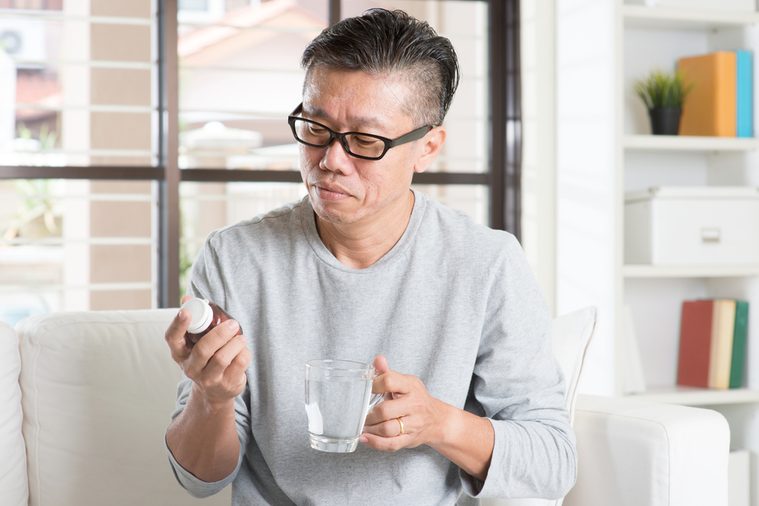
Check your meds
That over-the-counter cold or allergy medicine you pop might clear up your symptoms, but it will leave you feeling fatigued. Many OTC medicines have soporific side effects, as do many prescription drugs. Ask your doctor about switching to an alternative drug that can do the job without the unwanted draggy feeling. And if there are no good substitutes, see if you can change your dosing schedule so that the side effects strike mostly at night. Don’t miss these things you should avoid when you’re fatigued.
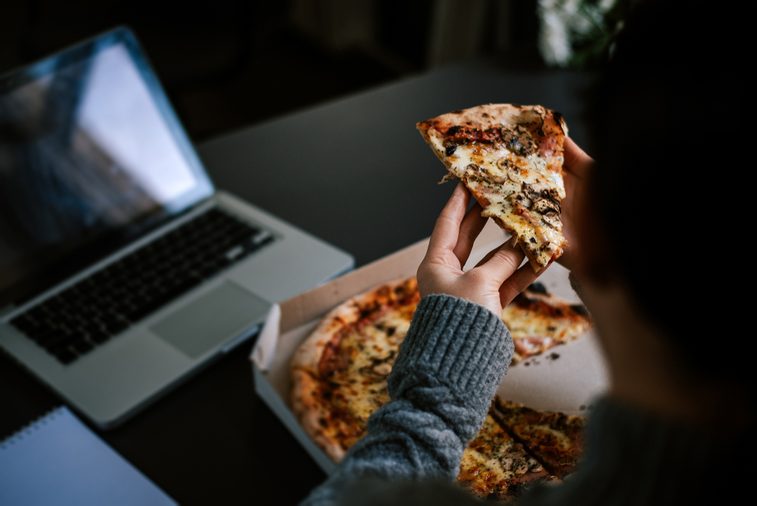
Don’t eat too late
“If you eat a heavy late night meal, you’ll be exhausted the next day,” says Wicks. Nutritionist Joy Bauer refers to this hard-to-get-out-of-bed feeling the morning after a heavy, late meal as a “food hangover.” Her advice: Eat a balanced, nutritious dinner, and if you’re still hungry later on have a piece of fruit or a cup of tea. “You’ll wake up feeling refreshed, not lethargic.”

Cool off
Chill your H20 and drink a glass, take a cold shower, or just splash cool water on your face. Any of these steps will give an instant hit of energy. “It’s about alertness,” explains Palinski-Wade. “Cold water wakes up your senses and makes you feel more refreshed.”
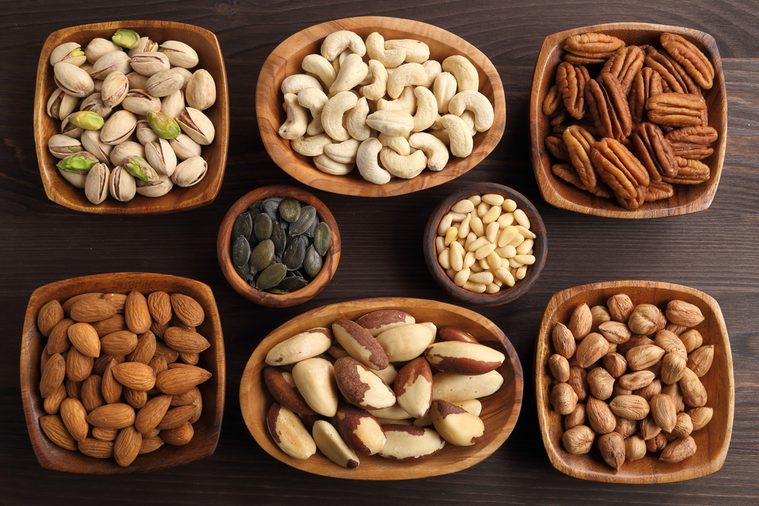
Go nuts
Skip the candy bar and grab a handful of nuts for an energy boost. “They’re one of my favorite foods for healthy snacking,” says Palmer. “They contain protein, fat, and healthy carbohydrates all in one serving.” Almonds, hazelnuts, and cashews are also rich in magnesium, which helps convert food to energy.

Stop and smell the flowers
Here’s a beautiful fix for fatigue. Nancy Etcoff, PhD, a psychology researcher at Harvard University, has found that being around fresh flowers at home in the morning makes people feel happier and more energetic at work all day. In the study, participants were sent either a gift of fresh flowers or a decorative candle for their home. Questioned a few days later, those with the flowers were less anxious and worried as well as less tired. The candle recipients didn’t report the same benefits.
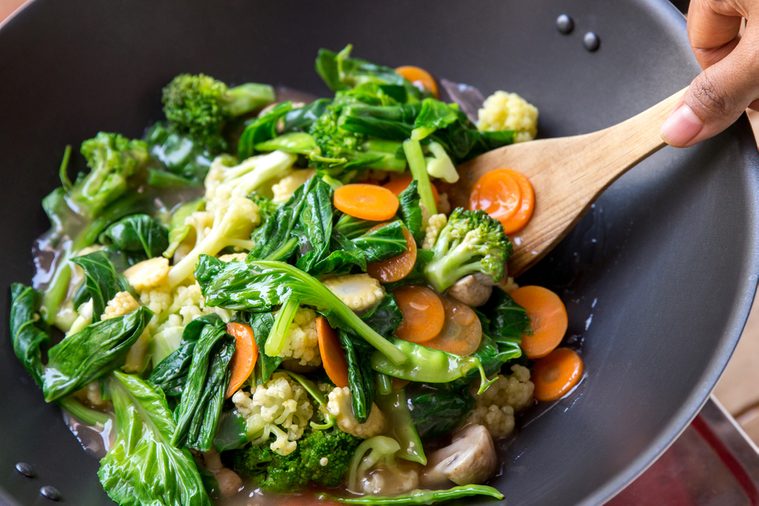
Cook more
“When you start to cook healthy food for yourself—whole foods, fruits, and vegetables—you feel better, have better digestion, and you have more energy too,” says Joe Wicks. He adds that when you rely on restaurants and take-out food, it’s hard to track exactly what you’re eating. Not a chef? “Everyone, even people with a small kitchen or a busy schedule, can make simple things like stir-fries or overnight oats,” says Wicks. “And even if you just make breakfast and lunch…that’s two meals out of three.” Check out the 45 foods you’re buying, that you should make at home healthier and cheaper.
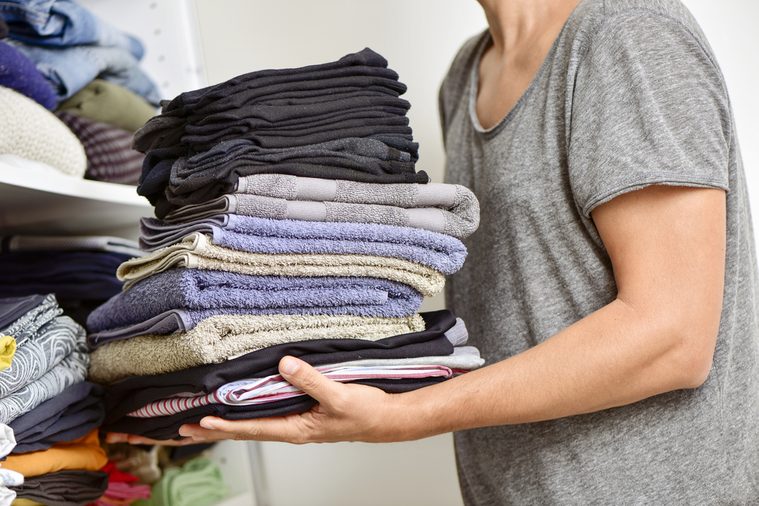
Declutter
A cluttered house or office doesn’t just look sloppy; being surrounded by clutter can make you feel exhausted. According to traditional Ayurvedic medicine, stress caused by clutter reduces and restricts life-force energy. Clutter in different areas of your home or office can affect you in different ways, but eliminating the clutter will help you create better energy flow and become more productive and less stressed.
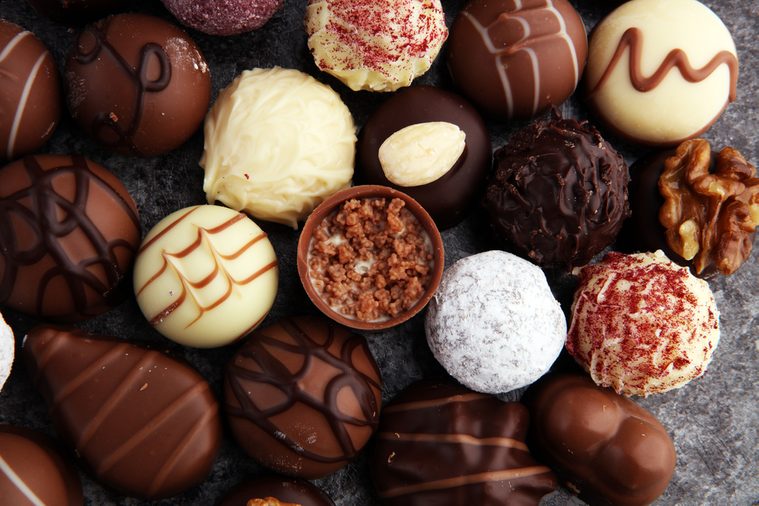
Go dark
Chocolate contains a small amount of caffeine as well as the stimulant theobromine, which is a caffeine-relative that provides a gentler energy boost. Chocolate also contains antioxidant flavonoids that have been shown to boost cognitive skills. Choose dark chocolate, as it contains more of the energy-boosting ingredients as has less fat. Look for products with 70 percent or more cacao. Here are some of the worst foods to get more energy.
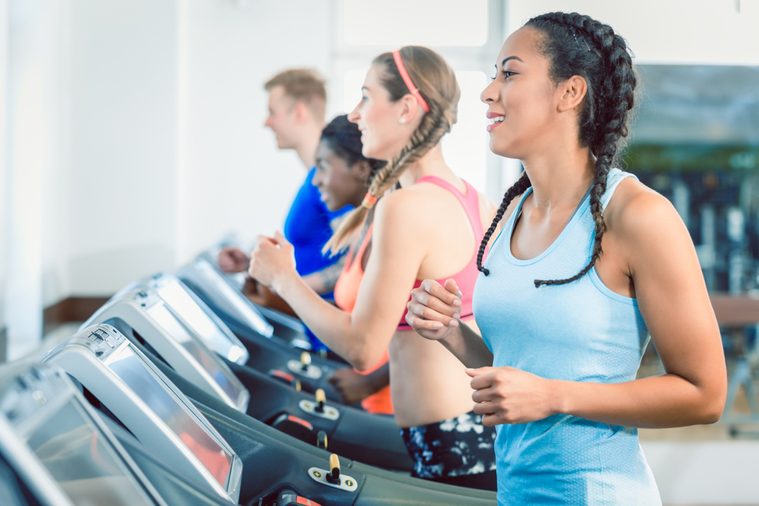
Take a HIIT
High-intensity interval training is a type of cardiovascular exercise that alternates bursts of intense activity—like running—with active recovery like walking. It’s an especially energizing way to work out. “My biggest endorphins come from HIIT training,” says Wicks. He’ll spend 20 minutes on a bike or treadmill alternating fast bursts of 30 seconds or so with slower recovery periods of walking (about 30 to 60 seconds). “That results in the most feel-good hormones,” he says.
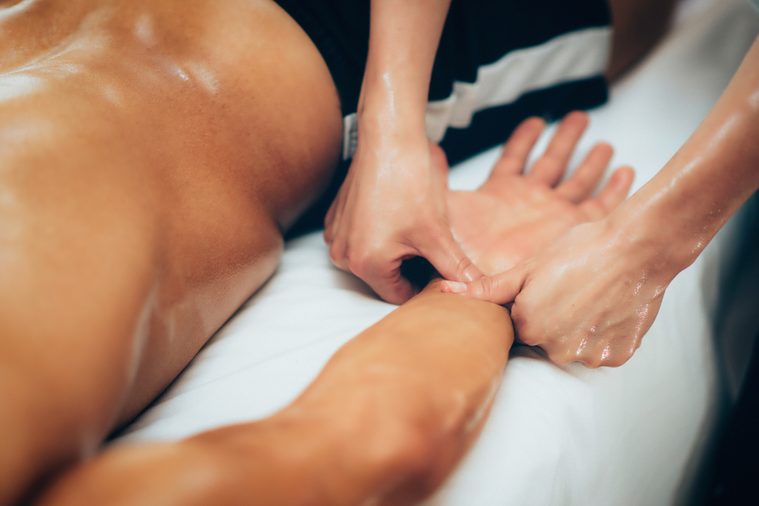
Get rubbed the right way
Besides feeling wonderful, massage is a great way to increase your energy since it improves blood flow all over the body. If a professional massage isn’t in the cards, you can do the job yourself. Deepak Chopra’s wellness destination Chopra Center promotes self-massage as a way to release hidden stores of energy and vitality. The Ayurvedic term for this type of massage is “Abhyanga,” and it’s generally performed with herbal oils. But the Chopra Center says it’s fine to skip the oil and do a dry massage on your arms and legs, neck and shoulders, face and scalp. The massage will help the skin to release health-promoting chemicals, and reenergize your entire system.
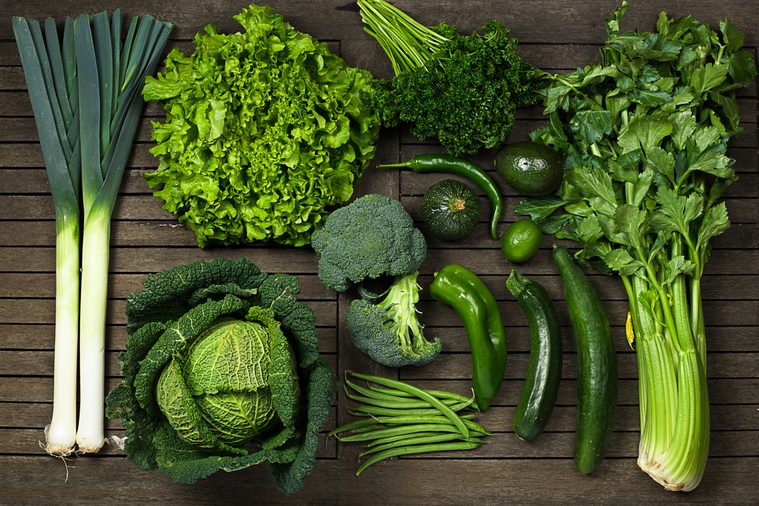
Eat your greens
You know that leafy greens are good for you—they’re low cal, high in fiber, and full of nutrients—but you may not know that they’re energy boosters, too. “Leafy greens like kale are a really good source of vitamin C and magnesium, which help convert food to energy,” says Palinski-Wade. Nutritionist Joy Bauer singles out Swiss chard as a top energy booster. “Not only does this leafy green contain a nice amount of energy-boosting iron, it also has vitamin C which increases the absorption of iron.” Check out these high-energy foods you should add to your diet.
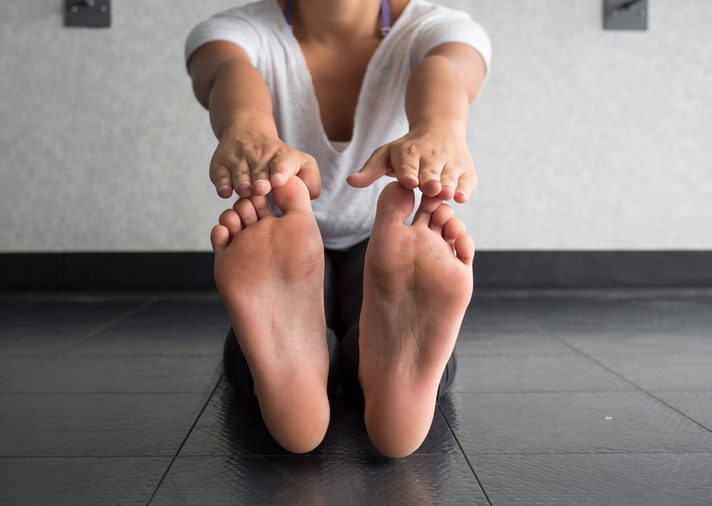
Hang your head
In a good way: Inverted poses—such as the yoga pose Downward Facing Dog—which put your head lower than your heart for a bit can give an instant energy boost by increasing blood blow to your brain. Just bending over to touch your toes works, too.

Tap your inner child
The San Franciso State University study that found that slouching caused a dip in energy also revealed that skipping gives you a boost. If you feel like more than a walk but less than a run, try skipping for a few minutes. Not only will you feel energized at the end, but we bet you’ve got a big smile on your face, too.
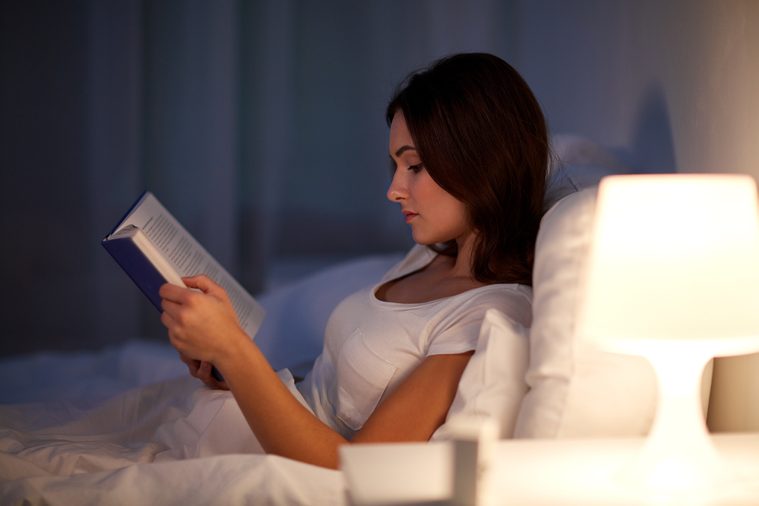
No screens in the bedroom
This policy can help improve the quality and quantity of your sleep. Texting, playing video games, or watching TV can all be so stimulating that it’s difficult to fall asleep afterward. Yet the National Sleep Foundation says that nearly 40 percent of Americans take their phone to bed and use it to text before trying to fall asleep. Worse, the blue light emitted from phones, tablets, and TVs also suppresses the hormone melatonin, necessary for regulating sleep-wake cycles. Instead, make your bedroom a no-tech zone; read a good (paper) book instead! Find out the 10 daily habits of naturally energetic people.

Picture nature
Even if you’re not working out, just going from indoors to outdoors—or even imagining it—will give you more energy, according to this study from the University of Rochester. Researchers there found that being outdoors in nature (which can be an urban park or a rural hiking trail) makes people feel more alive and energetic. But the study also found that just imagining being outside in nature delivers a similar effect. So go ahead and put up posters of beautiful forests, mountains, and beaches in your room or office. “Nature is food for the soul,” Richard Ryan, PhD, lead author of the study and a professor of psychology at Rochester, told Science Daily. “Often when we feel depleted we reach for a cup of coffee, but research suggests a better way to get energized is to connect with nature.”

LOL
Laughing not only feels good; the endorphins it releases into the bloodstream boost your energy as well as your mood. A study at the University of Nebraska-Lincoln found that people who watched a humorous 12-minute video felt significantly more energized than those who watched a video that wasn’t funny. Next, find out 25 more natural energy boosters that might just change your life.